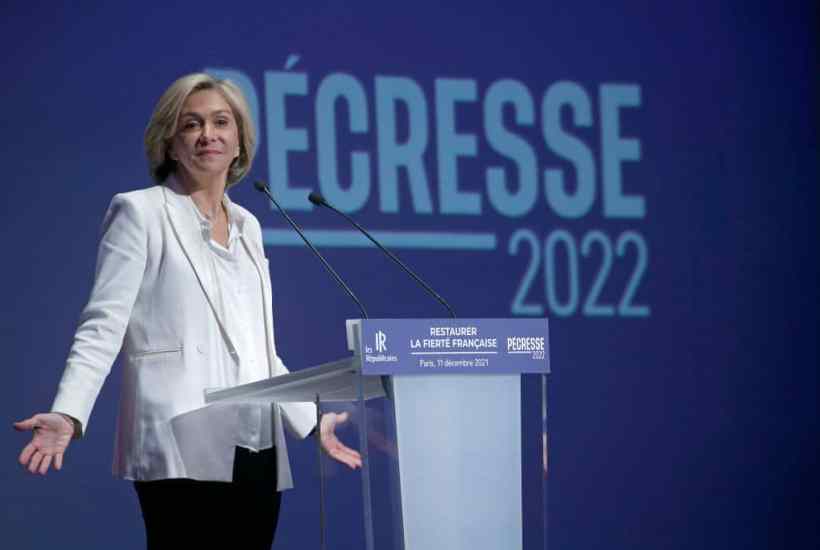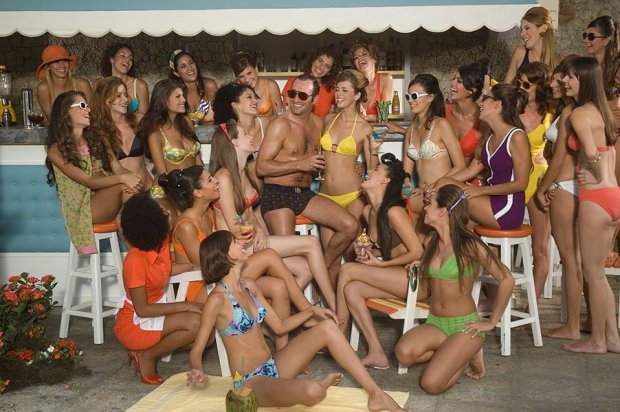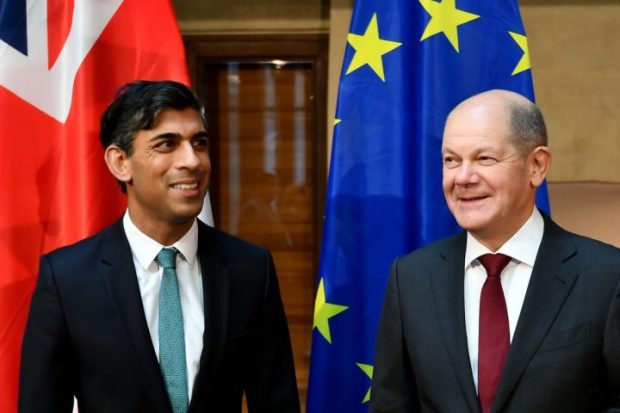It seems like just minutes ago that Michel Barnier, former Brexit negotiator, centre-right Républicain exiled to Brussels two decades ago, was being widely touted (not least by British correspondents in Paris) as the respectable opposition to President Emmanuel Macron in the 2022 presidential election campaign. As I predicted here and here, he’s subsequently disappeared in a puff of smoke, finishing third in the party’s candidate selection.
So meet Valérie Pécresse, 54, the somewhat surprisingly selected candidate of Les Républicains for president of France, and now in her turn being touted as the acceptable face of opposition. She’s certainly more credible than Barnier. Excited journalists inside the périphérique are reporting polls suggesting that she could even beat Macron in the second round of voting. (She dislikes him intensely, which puts her on side with many voters.) The polls do indeed show her within a whisker of Macron in a hypothetical second-round face off. There’s but one potential problem with this scenario. Can she actually get to the second round?
Pécresse, a former budget minister in the Sarkozy era, is presentable and respectable, but whether she’s really in tune with voters is a wide open question. Although Macron has the same problem. President of the Île-de-France region, which includes Paris, Pécresse is in many ways hard to differentiate from Macron. They are both graduates of the École National d’Administration, the elite finishing school for politicians, civil servants and bosses. She was born in Neuilly-Sur-Seine, which is as posh as it gets. Among her talents, she speaks French, Russian, English and Japanese.
She describes herself as a Gaullist, and also ‘two thirds Angela Merkel, one third Margaret Thatcher.’ But when she clarifies this claim, it’s plain that her identification with Thatcher is fairly tenuous.
‘If the idea is that I’m a strong woman, I say yes I am like Thatcher. That I am concerned for the middle class, certainly. That I want to put the public finances in order, yes. But as for the manner of exercising power, my model rests Angela Merkel, who has overcome political differences, as we’ve done in my region, which is socially to the left.’
She says the difference between her and Macron is that he’s fundamentally of the left and she’s of the right. In practical terms that doesn’t leave a huge gulf between them. She’s a believer in the big state and sees private enterprise mainly as a way to pay for it.
Outside the bourgeois enclaves of France, I don’t detect a tsunami of enthusiasm for her. And assumptions that anyone can untangle the calculus of a first round vote – with at least five serious candidates and perhaps many more less serious candidates nevertheless capable of shaving votes off the leaders – seem far-fetched.
As a detail, it’s worth noting that President Macron himself has yet to declare his candidacy but this is obviously merely expedient since he has been campaigning for months, flying around the country at taxpayer expense, promising billions of new spending for law and order, schools, the nuclear industry, space exploration, health care and in simple handouts to voters. Where the money is coming from is unexplained. Covid has left the public finances in tatters. There’s no longer much talk of structural economic reforms. Macron has been loyally supported by most of the media but not all.
That he can make it into the second round is assumed.
The left and its green allies look for the moment hors de combat. Anne Hidalgo, candidate of the Socialist Party, is marooned on 5 per cent. Jean-Luc Mélenchon, candidate of the further left party La France Insoumise is on roughly 10 per cent.
If it remains difficult to predict who will ultimately be offered to French voters in the second tour, it looks as if this election is unlikely to result in much of a mandate for the winner, or even a presidential majority in the National Assembly. Would Zemmour or Le Pen’s voters support the Républicains to oust Macron?
Of all the gifts bequeathed by General de Gaulle to France, liberation from the Germans in 1944 is arguably secondary. Hitler would have been defeated anyway. Nor was it France’s 30 glorious years of post-war economic growth (he played a part, but it wasn’t singular). It’s the Fifth Republic that is his legacy, and above all a two-round presidential electoral system designed to keep extremists out of the Élysée. It’s a system that’s endured now for more than half a century, which is an eternity in a country that’s segued from monarchy to one republic after another via empire and dictatorship. It’s a system that reflects de Gaulle’s fundamental mistrust of the French themselves. The Fifth Republic imposed a continuity of moderation, notwithstanding the baser instincts of voters. The president is practically an elected monarch, served by an elite technocracy that keeps communists and fascists in their place.
This constitutional settlement is now facing a severe test as the field of candidates emerges to present French voters with choices with a potential to upset the political geometry. Zemmour and Le Pen combined still have the allegiance of more voters than either Macron or Pécresse. Pécresse will be hoping they’ll split the first round vote among the further right, letting her face Macron. But dodgy French polls may not currently be a reliable guide to prediction.
Macron must still be counted as favourite, but perhaps no longer quite a sure thing.
Got something to add? Join the discussion and comment below.
Get 10 issues for just $10
Subscribe to The Spectator Australia today for the next 10 magazine issues, plus full online access, for just $10.



















Comments
Don't miss out
Join the conversation with other Spectator Australia readers. Subscribe to leave a comment.
SUBSCRIBEAlready a subscriber? Log in